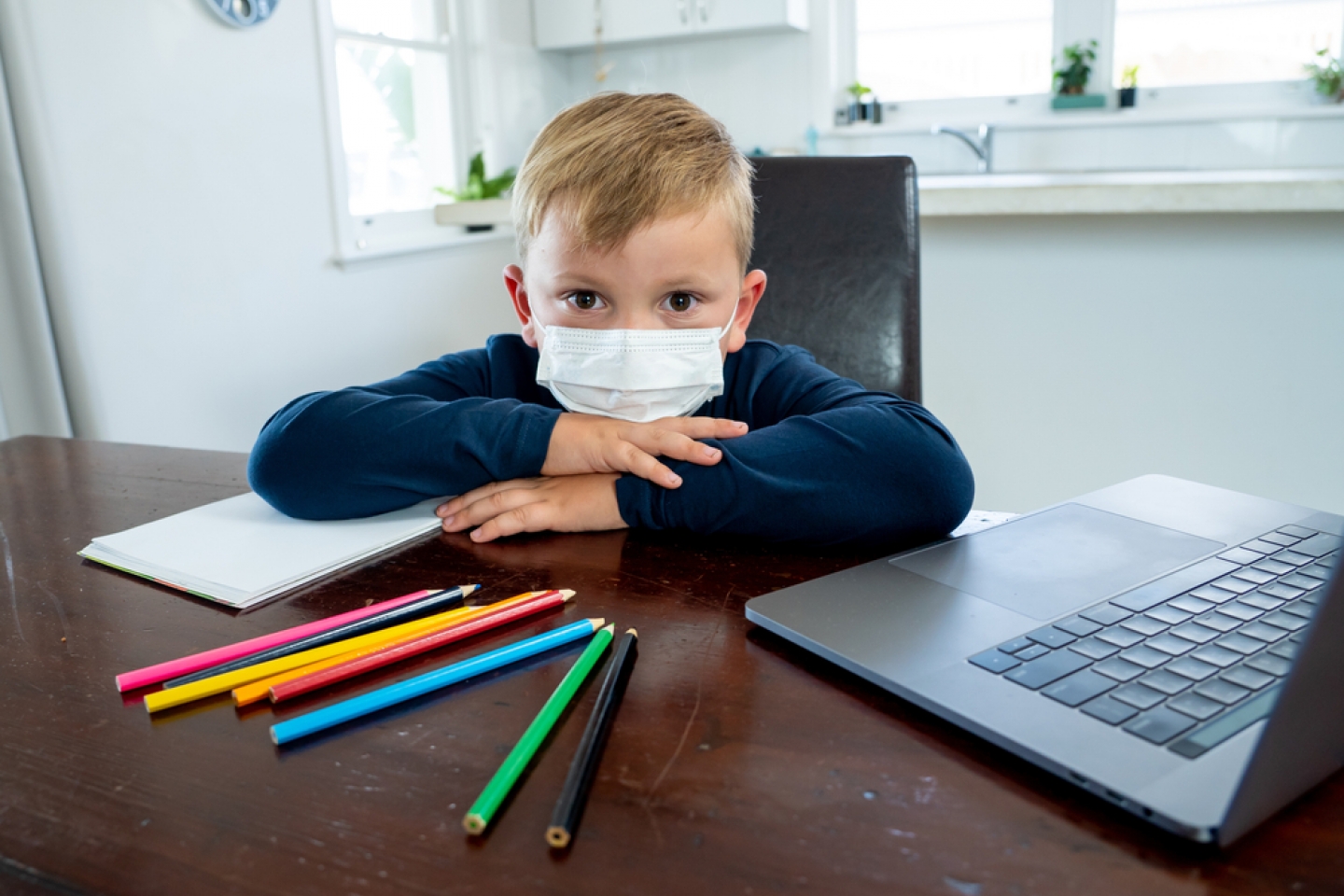Supporting Children’s Mental Health During the COVID-19 Pandemic

While most states have closed schools and made social distancing a priority to address the COVID-19 pandemic, parents may be wondering how they can help their children cope with being housebound and physically cut off from friends and family.
Sticking to a schedule, explaining the importance of social distancing in an age-appropriate manner, staying connected through technology, and seeking out mental health support by using telemedicine all can help.
In this time of uncertainty, the structure of a daily routine provides predictability, said Dr. Justin Mohatt, vice chair for child and adolescent psychiatry, vice chair for faculty practice of the Department of Psychiatry, and an assistant professor of clinical psychiatry at Weill Cornell Medicine.
“Your teenager needs structure, your 7-year-old needs it, and so does your 2-year-old,” he said, adding that predictability helps to reduce anxiety as well as potential conflicts between parents and their kids. Parents should create a schedule that includes regular wake-up and bedtimes, mealtimes, and home schooling hours, in addition to opportunities for fun and safe socializing such as group chats, virtual house parties, and going for walks or bike rides with a friend at a safe 6 foot distance.
Understanding the concept of social distancing while out in public is age-dependent. Teens, for example, seem to have the most difficulty with social distancing, which makes perfect developmental sense, said Dr. Mohatt, who is also an assistant attending psychiatrist at NewYork-Presbyterian/Weill Cornell Medical Center. “They’re supposed to be forming social relationships outside of the family, so they’re naturally driven to see their friends,” he said.
Another reason teens might not believe social distancing is necessary is that early data indicates they don’t have as high a risk of becoming seriously ill from COVID-19 as adults. They may need to hear about the details of the pandemic to better understand why social distancing is necessary. Parents can reinforce to teens that even if they're not personally at high risk of serious health consequences, they can still transmit SARS-CoV-2 to older adults who have a higher risk of becoming seriously ill, such as their grandparents or other loved ones, Dr. Mohatt said.
In contrast to teens, younger children are much more content to spend time with their parents at home and are more accepting of social distancing. Toddlers and young school-age children have less of a need to see their friends, Dr. Mohatt explained. However, they may still have questions about why they can’t see their classmates, grandparents, and other family members.
Young children typically do not have the ability to understand current events with as much sophistication as teenagers, so parents should keep their explanations about the pandemic simple. “If visiting the grandparents isn’t possible right now because you’re afraid of the health risks to them, you can simply say, ‘We can't see them right now, but we'll see them soon,’ or, ‘We'll talk to them on the phone later,’” Dr. Mohatt suggested.
In addition to phone calls, parents can help children of all ages maintain social ties by embracing online video chatting. Kids can feel connected to friends and family by using apps and software such as FaceTime or Zoom.
While parents may have concerns about too much screen time, “I think a lot of us have to be prepared to relax our restrictions a little bit,” Dr. Mohatt said. “If the family rule has been that kids can have screen time only on weekends, that might not be doable right now.” Parents may even want to encourage their teens to use social media apps like Snapchat and Instagram more than they normally would to feel connected to their peers.
The good news is that while researchers don’t yet have data on how social distancing and the pandemic is affecting children’s mental health, “we do have a lot of evidence showing that in the face of traumatic events, most kids do really well,” Dr. Mohatt said. “They’re resilient and adaptive.” While some children who have experienced traumatic events have short-term problems with anxiety or depression, most don’t have lasting psychological effects, he said.
Parents can help by looking after their own mental health. Young children are especially prone to picking up on their parents’ moods, especially anxiety, so it is just as important for parents to maintain structure, routine, social connections and healthy habits. In caring for themselves in this way, they can care for their children and simultaneously model the behaviors they expect of them.
Weill Cornell Medicine mental health professionals also are delivering their care to existing clients via telemedicine during the pandemic, said Dr. Mohatt. “We can continue to fully support our families during this time, and we hope that they will take advantage of that,” he said.
All of us at Weill Cornell Medicine understand that this is a difficult time for all New Yorkers. As experts in immunology, pulmonary medicine, and critical care medicine, we are working diligently to provide the greatest possible care to patients in need.
We are available to all New Yorkers who have questions or concerns. Please call our hotline at (646) 697-4000 for information about COVID-19 or read our patient guide.
